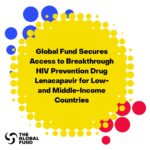Gladys Kalema-Zikusoka, Uganda’s first wildlife vet is the founder of Conservation Through Public Health to protect the health of mountain gorillas while improving the lives and livelihoods of the communities who live with them.
Years before the One Health approach was thrust into the spotlight following the outbreak of the COVID-19 pandemic, Dr Kalema-Zikusoka was already putting it into practice in Bwindi local community by enabling people, gorillas and other wildlife to co-exist through improving their health and community livelihoods in and around protected areas.
Last year, the pioneering wildlife veterinarian was named Champion of the Earth for Science and Innovation – from the United Nations Environment Programme. She tells MESHA’s Clifford Akumu about her amazing adventures with mountain gorillas.
- Kindly tell us how you gained interest in wildlife conservation?
I have always loved animals since I was young. We had many pets at home and at the age of 12 I decided that I wanted to become a veterinary doctor. My passion for animals led to the creation of a wildlife club in my high school – Kibuli Secondary School. This made me want to become a veterinary doctor who also works with wildlife. I later went to study veterinary medicine at Royal Veterinary College in London to enhance my dreams and passion. My first job was setting up the veterinary department at Uganda Wildlife Authority as Uganda’s first wildlife vet. When I led a team that investigated a fatal scabies skin disease outbreak in then critically endangered mountain gorillas traced to the Bwindi local community, we founded Conservation Through Public Health (CTPH) NGO a few years later to improve the health of people and wildlife together.
- Habitat loss and poaching are the biggest threats to mountain gorillas’ population. As a wildlife conservation enthusiast, just how huge is the challenge and what is your organisation doing about it?
This is a very big challenge and threat to the endangered mountain gorillas due to poverty, hunger and the increase in human population growth. To deal with these challenges, CTPH carries out different programmes in the communities living adjacent to the gorilla habitat.
CTPH trains Village Health and Conservation Teams (VHCTs) – community volunteers – to educate the local communities on the importance of gorillas and the forest to the local and national economy so that they can all protect the species. The VHCTs are also trained to provide health services and conservation education to the local community members, including family planning methods to enable families to balance their budgets, reduce poverty in their homes and their dependence on the ark to meet basic needs for food and fuelwood. This in turn is reducing the unsustainable population growth rate in the surrounding communities.
CTPH also has an alternative livelihood programme that provides the local community members with food and other sources of income to meet their basic family needs. Through the ‘Ready to Grow’ programme, CTPH was able to boost food security for local communities living around Bwindi Impenetrable National Park by providing them with perennial crop seedlings. Each grow kit distributed via the programme includes 10 packages of low-maintenance seedlings that need little space to grow and are harvestable within one to four months. This has reduced their dependence on the gorilla habitat for meat from duikers and bush pigs and fuel wood and helped to curb poaching.
CTPH also has a social enterprise – Gorilla Conservation Coffee, which works closely with 500 local coffee farmers adjacent to Bwindi Impenetrable National Park. Gorilla Conservation Coffee buys coffee from the local farmers at a premium price above the market rate and supports the farmers through training in sustainable coffee farming and processing. This helps to improve the coffee quality and increase production yield. Supporting local farmers helps to protect the endangered gorillas and their fragile habitat.
- You have received several awards for your conservation work with mountain gorillas. Which one of them has stood out for you and why?
All the awards I have received for the work through CTPH and Gorilla Conservation are a great deal. The first award we received was the San Diego Zoo Conservation in Action award in 2008, which was a great source of encouragement and since then we have been greatly honoured and humbled to win other awards. Each award has a different focus, but all of them recognise our holistic and innovative approach that is having a positive impact on conservation, health and sustainable development. The most recent awards I have received in the past three years for our One Health and Planetary health model have been the 2021 World Veterinary Day Award from Uganda Veterinary Association, 2021 UNEP Champion of the Earth Award for Science and Innovation and Edinburgh Medal for science and humanity and for CTPH it has been the Saint Andrews Prize for the Environment.
- Illegal wildlife trade and poaching activities is a major threat to the animals’ survival. What are the latest statistics looking like for the most trafficked and poached animals and where in Uganda are the wildlife poaching hotspots?
Some of the most poached and trafficked animals in Uganda include pangolins, elephants and rhinos. Uganda Wildlife Authority (UWA) together with its partners are working hard to combat poaching and wildlife trafficking of some of the animals mentioned. UWA rangers carry out routine patrols in the national parks to ensure the protection of the wildlife and their habitats.
There is very strict law enforcement at country borders where there is a high likelihood of smuggling of wildlife.
There is much more wildlife poaching in savannah protected areas than forest protected areas, which have more foot traffic from rangers and tourists providing more protection and law enforcement.
- Tell us about your new book on gorilla conservation and what should we expect when you launch it later this year?
My book titled ‘Walking With Gorillas’ that will be launched in October this year is a part memoir part charter that takes you through my personal conservation journey and my work as a wildlife veterinarian conserving mountain gorillas and other wildlife – reviving a wildlife club at high school, setting up the veterinary unit in UWA, founding CTPH and Gorilla Conservation Coffee and advocating for responsible and sustainable tourism to the great apes. It also talks about nurturing female and African leadership in conservation in order to have lasting impact.
- When you finally wrap up your career, what would you like to see happen for the wildlife across the country?
I would like to see more women and young people involved in the conservation of wildlife, especially among the local communities who share their habitat with wildlife. When you educate and provide knowledge to young people about the necessity of conserving wildlife, they will be the future decision makers and are able to influence policies that protect our planet.







